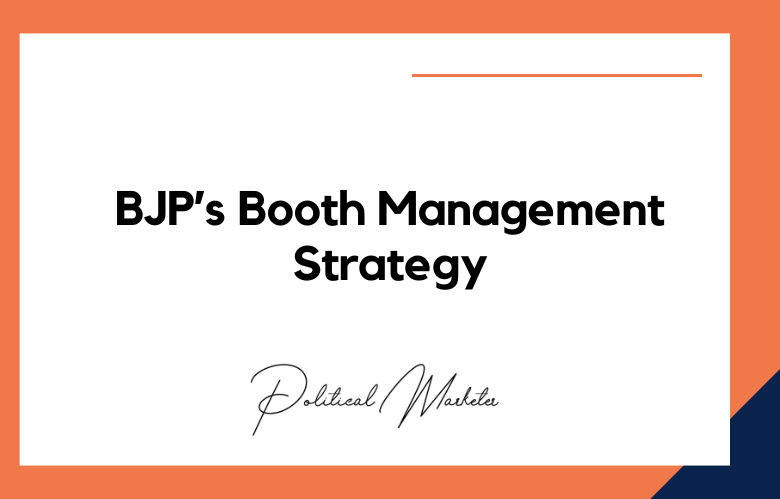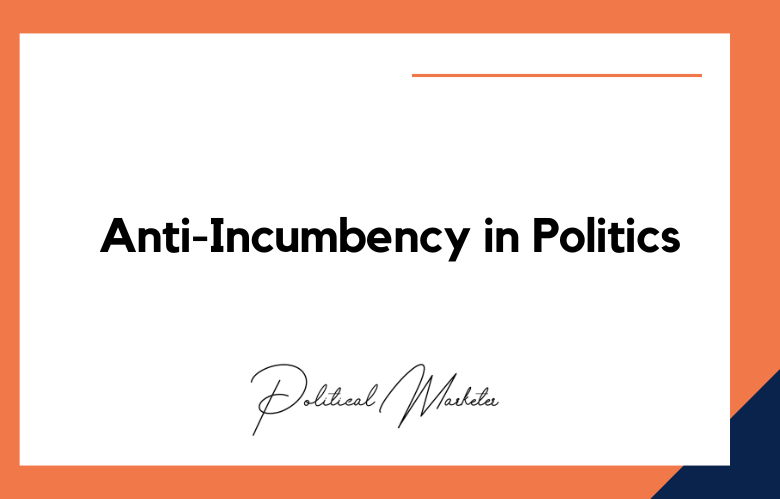SEO, or search engine optimization, is vital for online visibility. To ensure your website appears as the top result for relevant keywords and phrases, it is indispensable to understand how SEO works and how to optimize your website accordingly.
For politicians, online reputation is essential – a good SEO strategy can help ensure that the correct information appears at the top of search engine results on pages when people are looking for information on you or your campaign.
We’ll look at some SEO basics and how they apply specifically to politicians.
We’ll also discuss tips for improving your online reputation and ensuring that the correct information appears when people search for you online.
Politicians always look for new ways to improve their online reputation and get in front of more voters.
One way to do this is to optimize their website and content for search engines.
We will discuss how politicians can use SEO to improve online visibility and reach more people.
We will also cover critical factors affecting a politician’s search engine ranking.
So, if you are a politician who wants to learn more about SEO.
What is SEO for Politicians?
SEO can be a great way for politicians to reach out to potential constituents and connect with them more personally. Politicians can ensure the people who matter most by optimizing their websites and social media presence. Connecting with voters is essential in politics, and SEO can help politicians do just that.
SEO, or search engine optimization, is a technique politicians can use to improve online visibility. By optimizing their website for specific keywords related to their campaign or platform, politicians can ensure they appear higher in search engine results, making it more likely that potential voters will see them.
SEO can be a valuable tool for any politician looking to reach more people and garner more support. By optimizing their website for relevant keywords, politicians make the people who matter most: potential voters.
Search Engine Optimization(SEO) is a process by which a website can improve its ranking on search engine results pages. It is essential for politicians because it can help them communicate their message to potential voters.
Politicians can do a few things to optimize their websites for better search engine results. One is to use keyword-rich titles and descriptions. It helps their website appear in search results when people seek information on specific political topics. Another tip is to create fresh, original content that interests readers and makes them want to return for more.
SEO is essential for politicians who want to reach as many voters as possible. They can improve their website’s ranking and get their message out there using simple tips.
The impact of online reputation on search engine rankings
Online reputation has a significant effect on search engine rankings. It is because if a website has a lot of negative reviews, it will rank lower in the search results. Conversely, a website with primarily positive reviews will rank higher. So, keeping an eye on your online reputation and getting as many positive reviews as possible is essential.
The impact of online reputation on search engine rankings is well known. However, what is less well known is the specifics of how online reputation affects order.
Factors like the inbound links and the domain age can affect a site’s reputation. However, there are other subtle ways that reputation affects ranking.
For example, the tone of content on a site can influence whether it is reputable by search engines. Negative sentiment could signify to search engines that a site is untrustworthy, leading to a lower ranking.
The impact of online reputation on search engine rankings is undeniable. A company’s reputation can make or break its online presence. An excellent online reputation leads to increase traffic and better search engine rankings, while a bad online reputation can do the opposite. The importance of managing one’s online reputation is evident.
Many businesses are increasingly aware of online reputation’s impact on search engine rankings. After all, a negative reputation can make it difficult for customers to find you online – and a positive reputation can help you stand out from the competition.
But what is online reputation, and how can you ensure that yours is positive?
Online reputation is how customers perceive your business when they search for it online. And unfortunately, it only takes a few negative reviews or ratings to damage your ranking.
That’s why it is essential to be active in your online reputation. Regularly monitoring your online presence and addressing any negative feedback quickly and professionally can help you stay ahead of the curve – and ensure that your business thrives in the digital age.
How to improve your SEO ranking using online reputation management techniques
There are several ways to improve your SEO ranking using online reputation management techniques. One way is to ensure your website has positive reviews and testimonials. It will show potential customers that you are a reputable business. Another way is to create blog posts and articles that are keyword rich and informative. It helps potential customers find your website when searching for information online.
Are you looking to enhance your SEO ranking? By using online reputation management techniques, you can boost your website’s search engine results in pages. Here are some points to get started:
Monitor your online reputation: Use Google Alerts or other tools to track what is said about you online.
Respond to negative comments: If you see negative comments about your business, take the time to respond professionally. It shows to pay attention to your online reputation and are committed to providing excellent customer service.
Encourage positive reviews: Ask satisfied customers to leave positive reviews on websites like Google Places or Yelp. Good reviews can help improve your SEO ranking.
Are you looking to improve your SEO ranking? Online reputation management techniques can be a great way to help boost your ranking. Here are a few tips to get you started:
- Ensure the website is updated regularly with fresh, relevant content.
- Encourage customers and clients to leave positive reviews on popular review sites.
- Monitor your online reputation and label any negative feedback promptly.
These simple tips can help improve your SEO ranking and build a positive online reputation.
The future of SEO for politicians
The future of SEO for politicians is evolving. How people consume content is changing, as are the techniques that political campaigns use to reach potential voters. In the 2020 election cycle, SEO for politicians will continue to evolve and become more sophisticated. Here are three ways that the future of SEO for politicians may look different from what we’re seeing today:
Personalized content: In the future, political campaigns will use data and analytics to create highly customized content for each voter. It could include targeted ads, emails, and social media posts tailored to each voter’s interests and needs.
Greater use of video: As internet speeds continue to increase and screen sizes get bigger, videos become an increasingly important part of the digital landscape. Political campaigns must create compelling videos that capture voters’ attention and clearly and concisely communicate their message.
New platforms and technologies: We can’t predict what new media and technologies will emerge in the next few years, but it’s safe to say that they will significantly impact how political campaigns reach voters online. In the future, SEO for politicians will need to be adaptive and flexible to keep up with these changes.
As the world of politics becomes increasingly digitized, the need for solid SEO strategies will only grow. Politicians adapt to a new landscape and learn to capitalize on the power of the internet if they want to stay in the game.
The future of SEO for politicians demands innovation and creativity. Those who can learn to harness the power of this tool will find themselves in a much stronger position to win elections and get their message out there.
The future of SEO for politicians looks bright. They are finding new ways to improve their online presence and reach more people. SEO is essential for them to connect with potential voters easily. Using the right keywords and strategies, politicians can ensure they are always visible online, regardless of competition.
The future of SEO is going to be huge for politicians. By understanding how to optimize their web presence, they’ll be able to reach more people and get their message across more effectively. It’s a tool to ignore, and those who master it will have a significant advantage in the political arena.
The future of SEO for politicians will be about more than just optimizing websites. It will also be about social media, online advertising, and content marketing. To be successful, politicians will need to have a well-rounded online presence.
The effects of online reputation on search engine results
The impact of online political reputation is far-reaching. Just as a company’s online reputation can make or break them, so can a politician’s. In today’s age of social media and search engines, it is more important than ever for politicians to have an excellent online reputation.
A politician’s online reputation can significantly affect their popularity and success. A bad online reputation can make it harder for people to find information about a politician and make them vote. On the other hand, an excellent online reputation can help a politician get more attention and support from voters.
The effects of online political reputation can be far-reaching. For example, consider how search engine results are often influenced by what others have said about a politician. Politicians with an excellent online reputation are more likely to appear higher in search engine results. It can give them a significant advantage over their opponents.
The online political reputation of a candidate can have a significant impact on their search engine results. A candidate’s favorable online reputation can result in better search engine visibility and higher web traffic, while a negative online reputation can have the opposite effect.
Therefore, candidates need to care for their online reputation and engage in activities that will improve their presence on the web. One way is by actively managing their social media accounts and monitoring what is said about them online.
Why politicians should care about their online presence
Politicians must ensure a solid online presence as online communication becomes increasingly essential.
By connecting with constituents and supporters online, politicians can stay up-to-date on the issues that matter to them. Additionally, an active online presence can help politicians reach a wider audience and raise their profile.
In today’s digital world, neglecting your online presence as a politician is no longer an option. If you need success, you should make sure you’re engaging with voters where they are: online.
Numerous studies show that people are likely to trust a politician with an active online presence. A recent study found that their online presence was the most critical factor when deciding whether to trust a politician.
It is likely because an active online presence creates a sense of transparency and accessibility, which voters value in their representatives. Therefore, politicians must be busy on social media and other online forums to win the electorate’s trust.
Especially in the digital age, keeping up with a solid online presence has become increasingly important for politicians. After all, social media platforms provide a way for constituents to connect with their representatives more personally.
That said, it’s not just about maintaining a Twitter or Facebook profile. To craft a well-rounded online presence, politicians must also be careful about the content they share and how they interact with others online.
In today’s climate, an effective online presence can make all the difference in winning over voters. By taking the time to consider their web strategy carefully, politicians can ensure that they are connecting with constituents in the best way possible.
Tips for Maintaining a Positive Online Reputation for Politicians
- Monitor what to say about you online and respond quickly to negative comments.
- Create a social media policy for your staff that outlines what is and isn’t allowed to post online.
- Make it easy to contact people and get feedback or questions- include your email address, phone number, and mailing address on your website.
- Be transparent- share information about who you are, what you stand for, and what you’re working on
- Respond positively to constructive criticism
- Avoid getting into arguments with people online
- Apologize when you make a mistake
- Show gratitude to your supporters
- Monitor your social media accounts and delete any negative comments
- Avoid getting into online discussions with people who have opposing views
- Respond to criticism in a polite and respectful manner
- Show empathy towards people who are upset about something you’ve said or done
- Apologize if you make a mistake and take steps to make sure it doesn’t happen again
- Be transparent and honest with the public
- Support other politicians who share your same values
- Stay positive even when things are going wrong
- Respond to any criticism calmly and professionally
- Apologize when you make a mistake
- Thank your supporters
- Connect with voters on a personal level
- Promote your positive achievements
- Avoid getting into heated debates online
- Keep your website and social media profiles up-to-date
- Monitor your social media accounts and remove any negative comments
- Respond to criticism calmly and rationally
- Keep your website updated with news and information about your campaign
- Make sure all of your social media profiles are consistent with each other
- Use positive language in all of your online content
- Monitor your social media accounts for any negative comments or posts
- Apologize if you make a mistake and learn from it
- Show that you are accessible and responsive to the public
- Be transparent- share your policies, stances, and voting records with the public
- Cooperate with the media- answer their questions honestly and provide information promptly
- Avoid scandals and negative publicity as much as possible
- Connect with voters on a personal level
- Monitor what is being said about you online and respond quickly to any negative comments.
- Use positive language in all of your online communications
- Make sure your website is up to date and looks professional
- Respond to every email, tweet, or Facebook message sent to you
- Meet with members of the press and answer their questions honestly
- Be transparent and open with your constituents
- Thank the people who support you
Conclusion
Online reputation management for politicians is a complex and vital task. Search engine optimization ensures that the best information about you appears at the top of search engine results pages.
We hope the article gives you a better understanding of how your online presence affects your ranking in search engines.
If you want any information about our services or have any questions, please don’t hesitate to contact us. We would be happy to help our clients achieve their desired online reputation.
One way to get in touch is by filling out our online form on this site or give us a call at
+91 9848321284. Let’s work together today!











